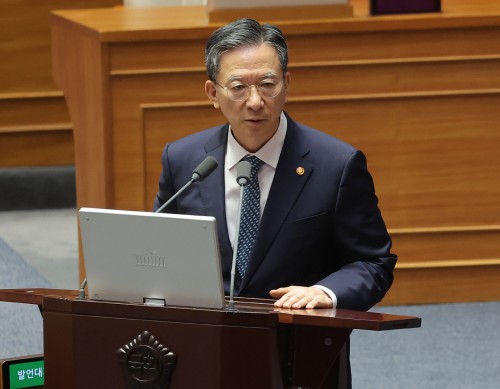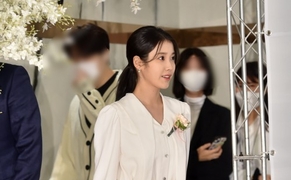 |
| Justice Minister Jung Sung-ho. / Source: Yonhap News |
The ruling party’s Justice Minister Jung Sung-ho, who had stepped back during the prosecution-reform push, is now being urged to take the lead in the judicial-reform phase.
Inside the ministry, some complain that “with the policy direction already fixed, the minister and the ministry are being dragged along,” while the ruling party is racing to complete judicial reform by late November.
Legal professionals argue that because the Justice Ministry is a core pillar in operating the judicial system, it should state its position from the perspective of protecting citizens’ rights, without being swept up in politics.
Jung will testify on October 14 at the National Assembly’s Legislation and Judiciary Committee audit. Having already passed legislation to abolish the prosecution service, the Democratic Party plans to draft reform bills around the “Special Committee on People-Centered Judicial Reform” by mid-October and complete enactment by November. The ruling party is expected to emphasize the need for reform, while the opposition will likely stress judicial independence.
Jung previously showed a measured distance from the ruling party over prosecution reform. At a Budget Committee plenary session, he warned that if reform is rushed, the criminal and judicial systems could be shaken, harming the public—implicitly calling for a slower pace.
But his caution quickly faded amid intraparty backlash. As a long-time ally of President Lee, Jung became the first senior figure in the Lee administration to float a slowdown, prompting talk of emerging rifts between the government and party. He later said, “The National Assembly holds the initiative in legislation,” stepped back, and has refrained from public comment on follow-up reform details.
A source familiar with the ministry said, “There was considerable internal opposition—including from the minister—regarding the prosecution-reform plan,” adding, “The ruling party’s influence is so strong that the ministry effectively has little room to present its views.”
The legal community stresses that proposals to add Supreme Court justices and introduce a constitutional litigation route to challenge judgments would profoundly reshape the system; the ministry should rigorously test institutional balance and effectiveness and engage actively in deliberations.
Jang Young-soo, emeritus professor at Korea University Law School, said, “It is only right for the justice minister to state views on judicial reform.” Yet he questioned feasibility “given current political realities,” warning, “Rushed reforms invariably backfire, and if even saying ‘we should be prudent’ is difficult, the process is veering into excessive unilateralism.”
He added, “If it’s obvious the public will be harmed, deferring debate with a ‘we’ll talk later’ attitude is irresponsible.”
Former prosecutor and attorney Lim Moo-young also said, “On matters of the judicial system, it is natural for the Justice Ministry to state its position,” emphasizing that “when the conscience of legal professionals collides with a government’s interests, they must decide by principle.”
Most Read
-
1
-
2
-
3
-
4
-
5
-
6
-
7





















